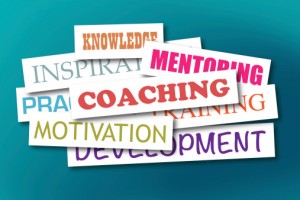Teacher as Director & Coach
In a previous post, I wrote about the unnaturalness of acting, how awkward I felt, and what a poor actor I was. I mentioned how important I think it is for teachers to write alongside their students so we can feel the frustration and vulnerability that comes with doing something unnatural, like writing or acting. My recent experience being directed made me think about what it is like to be taught. In the interest of full disclosure, I also coached soccer for a long time and played very poorly, so awkwardness and unnaturalness is something I’ve been on both sides of.
As an actor I struggled, but I was got better. I gained a little confidence as I got past just remembering the lines and where to go. I started thinking about other things, like how to deliver rather than remember the line. How did that happen, I wondered? I watched the same thing happen to my castmates. They were getting better too. I started to pay attention to the director. He was teaching us to do something so awkward and unnatural that we were actually forgetting natural things, like how to walk. (I’m glad I only had to cross the stage once. #stumbles) Watching him direct novice actors showed me ways to teach novice writers. Here’s what I learned:
 Recognize and acknowledge students’ difficulty and the effort. “I know this is hard, and I can see you’re…” It’s unnatural and hard to go from being an excellent talker to being a deliberate writer. Putting myself in the role of learner reminded me of that.
Recognize and acknowledge students’ difficulty and the effort. “I know this is hard, and I can see you’re…” It’s unnatural and hard to go from being an excellent talker to being a deliberate writer. Putting myself in the role of learner reminded me of that.
Use different approaches. This is where coaching or directing skills come in handy. Look for what works and what doesn’t, and build on the good stuff, no matter how small. Coaches also know when to sort the groups by ability, work one on one, and when to step back and let someone struggle. Our director did the same things, taking one of us aside while the others worked, or sometimes stepping back and letting us muddle through a scene until we found our groove and got a taste of what it felt like to get it right.
To the struggling actor: “If you want to make this funny, try picking out one person in the audience and talking to her…” or “When you say that line think about your own child’s birthday…” or “Memorizing long stretches of dialogue is hard. Try writing the lines on note cards, and walk around as you read them.” We don’t all learn the same way, so my teaching has to have multiple points of entry.
Not everything works for every person. Actors, writers, and players are all different. They think differently, see things differently, and need different ways to move their audience.
When you get lost, keep the end in mind. “Where do you want to be at the end of the scene? How are you going to get there?” Writing is about purpose. How best to achieve it? As a teacher it’s easy to get bogged down in things that aren’t going well. The grammar is wrong. I haven’t really explained how to transition without being mechanical. The same thing happens to coaches and directors but if you can see where you want to end up, it’s likely you’ll find ways to get there.
Always leave space for epiphany, creativity, and happy accidents. This is connected to the above thought in that sometimes we get where we wanted to be, but we don’t know how. Writers need to be okay with trusting their instincts, especially if the end result is good. Praise the end result–nice goal, great paragraph, hilarious scene–and find out what went right.
Things don’t always go right. When I was coaching I used to tell my players, “You’re going to make 100’s of mistakes this season. (Thanks, coach.) I don’t care about the mistake (A lie). I care about what you do next.” I got the same advice from my director and it had the same effect on me as it had on my players. I was scared, but relieved. I knew I’d feel the mistakes, but I also knew I had to keep going and make it better.
Do not just tell your students what you want; model it. This seems to be a key move in giving good feedback as well. I ask my students to rewrite weak parts of their partner’s writing so the partner can see how it’s done, or how it might be done. In truth, this was always a struggle for me as a coach. As a player, I aspired to one day be…mediocre, and I’m not the best writer but modeling isn’t always about the only way to do something. In writing, it’s also about giving an option for another way to do something.
 Never forget your audience. Like much of what I learned, this applies to students and teachers. It’s all about moving your audience. This goes for writers, actors and teachers. I think of those long-winded professors I had in college. Droning on, oblivious to the blanks stares, they might as well have been talking to a mirror. (Any teacher who thinks that a lecture is a good way to teach should be forced to actually sit through one.) It’s not about the director, or the actor, or the writer. It’s about getting that audience where they need to be. As a teacher, I think about the purpose–where I want to be–but I try to listen to my audience; find out what works for them and use that to reach the purpose.
Never forget your audience. Like much of what I learned, this applies to students and teachers. It’s all about moving your audience. This goes for writers, actors and teachers. I think of those long-winded professors I had in college. Droning on, oblivious to the blanks stares, they might as well have been talking to a mirror. (Any teacher who thinks that a lecture is a good way to teach should be forced to actually sit through one.) It’s not about the director, or the actor, or the writer. It’s about getting that audience where they need to be. As a teacher, I think about the purpose–where I want to be–but I try to listen to my audience; find out what works for them and use that to reach the purpose.
I thought about a lot of this while we were rehearsing and learning Our Town. It was good to be on the other side of the relationship: learning something new, working with people with different learning styles, an unfamiliar text. There were no lectures. Talks? Yep. Listening? Check. But lectures? There wasn’t one and yet we still learned. I say take every lecturer and turn him into a coach, or a good director, after we make him sit through a lecture. Teach him the skills that directors and coaches have to master. Teachers should coach something, or direct, and they need to learn to play something or act.
Finally, gentle reader, this my last play related post. I promise, I’m over it.
 Rick Kreinbring teaches English at Avondale High School in Auburn Hills, Michigan. His current assignments include teaching AP Language and Composition and AP Literature and Composition. He is a member of a statewide research project through the Michigan Teachers as Researchers Collaborative partnered with the MSU Writing in Digital Environments Program, which concentrates on improving student writing and peer feedback. Rick has presented at the National Advanced Placement Convention and the National Council of Teachers of English Conference. He is in his twenty-third year of teaching and makes his home in Huntington Woods.
Rick Kreinbring teaches English at Avondale High School in Auburn Hills, Michigan. His current assignments include teaching AP Language and Composition and AP Literature and Composition. He is a member of a statewide research project through the Michigan Teachers as Researchers Collaborative partnered with the MSU Writing in Digital Environments Program, which concentrates on improving student writing and peer feedback. Rick has presented at the National Advanced Placement Convention and the National Council of Teachers of English Conference. He is in his twenty-third year of teaching and makes his home in Huntington Woods.
